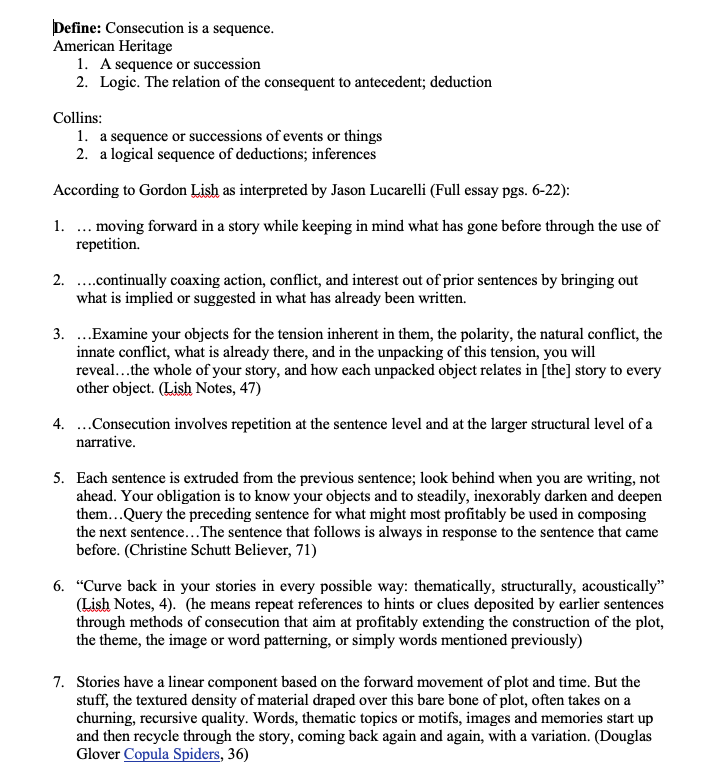Creative Writing Workshop: Consecution is a fancy way of saying “sequencing”
“Consecution” (is a) re-describing (of) the compositional process, how the repetition of words and sequences of events progress toward a naturally developed story with a coherent plot structure…(which is not)…different from the advice of the classicists — …good writing is, after all, good writing. Lish’s genius is in making it strange that we might see it better. ~ From The Consecution of Gordon Lish by Jason Lucarelli
 Any gardener knows that first the bud appears and then comes the blossom. This evolution takes place in stages. While there are many ways to discuss this idea of consecution, this seems the most fitting as I pull together this post.
Any gardener knows that first the bud appears and then comes the blossom. This evolution takes place in stages. While there are many ways to discuss this idea of consecution, this seems the most fitting as I pull together this post.
In this creative writing workshop, students discussed how consecution worked in A Tale of Two Cities back in May of 2023, here at the Studio, but as I edited that class for this post, I thought about how hard it was for people (myself included) to understand.
“What is the A, B, C, of it?” one of the students in class asked and I realized that I did not answer at the time because it is so easy to get into the weeds.
Steps. Stages. Unfolding’s…like a flower coming into bloom. That is the A, B, C of it and if a writer cannot provide these stages in their storytelling, cannot describe them intimately and stage them through the story in a meaningful way, they will not be employing this technique known as consecution. But even this becomes slippery and confusing and difficult.
Please watch this teaching and see if you can make sense of it. Click here.
To help you, I’ve provided this handout which you’ll see in the video.

If you have more ways to describe and thus explain consecution, beyond what’s been provided in this creative writing workshop, please offer them in the comments. We might never hit the nail right on the head, but we can get close!
~ Jennifer

